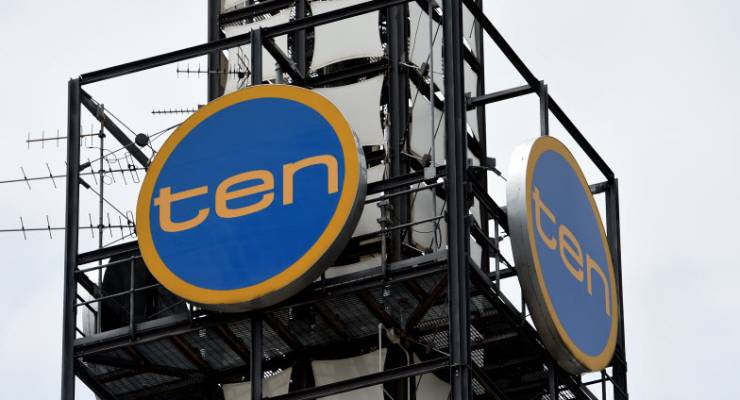
Now that the Foreign Investment Review Board has removed the last impediment to the CBS takeover of the Ten network, we can turn to the remaining question: who are the buyers and who the sellers in the major companies?
Remember, the argument for abolishing the restrictions on the cross-media ownership laws was to allow the players to get big – by merging – to confront the challenge of Facebook and Google. It was only the “archaic” restrictions on owning two newspapers, radio or television stations in the one market that was standing in the way.
So how will Fairfax Media, News Corp, Seven West Media and Nine Entertainment cut and dice their operations to create two continuing operations? How will four go into two?
Why the seller’s advantage?
Before the Ten imbroglio, the collective wisdom was that Ten would fall into News Corp while Fairfax and Nine would merge. The three regional networks would be absorbed by their metropolitan parents.
But it’s not just CBS who have mucked up the party by taking over Ten. It’s our old friend, digital disruption.
There’s a lot more enthusiasm in the industry to be the seller, rather than the buyer. And the market is pricing accordingly. It’s like a reverse musical chairs – where the losers end up sitting on the media assets dealing with the collapse of their business model. The winners are left standing with cash in hand.
The media ownership changes haven’t removed all impediments to merger.
The Australian Consumer and Competition Council (ACCC) still needs to determine that any merger doesn’t “significantly lessen” competition in any market. In August, ACCC chair Rod Sims said he would approve the proposed News Corp takeover of Ten, after taking into account that Ten was the smallest network.
Given this approach, it seems unlikely that News Corp would be permitted to take over either Seven or Nine, although the ACCC may take a more generous approach when faced with a concrete proposal.
What are the most likely scenarios?
The second impediment is the so-called “minimum voices” rule, which mandates at least five “independent” media voices in each capital city market (and four in regional markets). This can be the three free-to-air television networks and two radio networks. It could also include the new digital players like The Guardian or BuzzFeed (or maybe even Crikey). It’s hard to see this blocking the big four merging into two.
This means the most likely option remains Fairfax merging with either Nine Entertainment or Seven West Media. Nine has the most upside for Fairfax – they already cooperate in the Stan streaming service and there are certainly synergies for promotion of Domain on the network (“The Domain Block”, anyone?). Both have a broad-based shareholding and a share swap merger would create a new larger company without materially affecting ownership groupings or creating debt.
On the other hand, what’s in this for Nine? That’s why gossip is that Nine is cold on the idea because none of the synergies outweigh the troubles they’d inherit in taking on the newspaper business.
Seven does bring synergies on the newspaper side through its ownership of The West Australian (where “synergies” means “job losses”). But in Kerry Stokes, Seven has a major owner who may be reluctant to dilute through a merger or share swap.
What is News Corp’s next move?
It’s possible that News Corp could make an inflated offer to buy Ten from CBS. It wouldn’t be the first time the Murdochs have paid over the odds for an asset they really wanted. But after manoeuvring to get the network on the cheap, it would seem unlikely – and that’s before we start to factor in the notoriously bad relationship between the Murdochs and the CBS-owning Redstones.
So if News Corp and Seven West can’t or won’t buy, and Fairfax can’t sell, does that mean the Murdochs, themselves, might end up being the sellers when the music stops?
News Corp is restructuring its Australian operations to spin off Foxtel and Fox Sports into a separately listed company. The money tree in the company — Realestate.com.au — is already a separately listed company. That leaves the Australian newspapers more or less in their own business unit.
Leave aside the arguments that the Murdochs never sell (not true); that the papers are the heart of their political influence (arguably not true since at least the 2015 Queensland election); or that they have a special bond with their Australian roots (tell that to the Adelaide Daily News, which he sold to a management buy-out in 1987 and which closed five years later).
When the Murdochs do sell, they sell to another media baron or conglomerate, because it’s quicker and easier than relying on the vagaries of the market. We saw that last year when they sold the Perth Sunday Times to Kerry Stokes’ Seven West Media. As part of that deal, News Corp is providing substantial content to The West Australian.
Maybe that was a trial run for a larger sale?








Crikey is committed to hosting lively discussions. Help us keep the conversation useful, interesting and welcoming. We aim to publish comments quickly in the interest of promoting robust conversation, but we’re a small team and we deploy filters to protect against legal risk. Occasionally your comment may be held up while we review, but we’re working as fast as we can to keep the conversation rolling.
The Crikey comment section is members-only content. Please subscribe to leave a comment.
The Crikey comment section is members-only content. Please login to leave a comment.